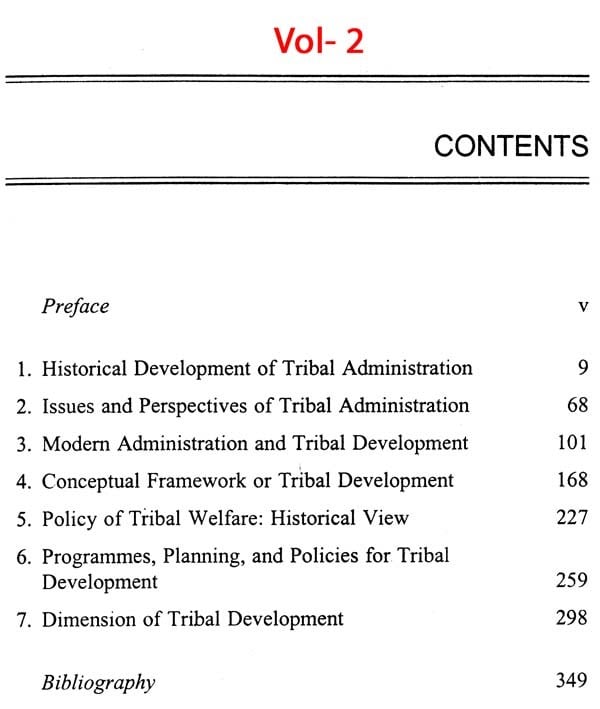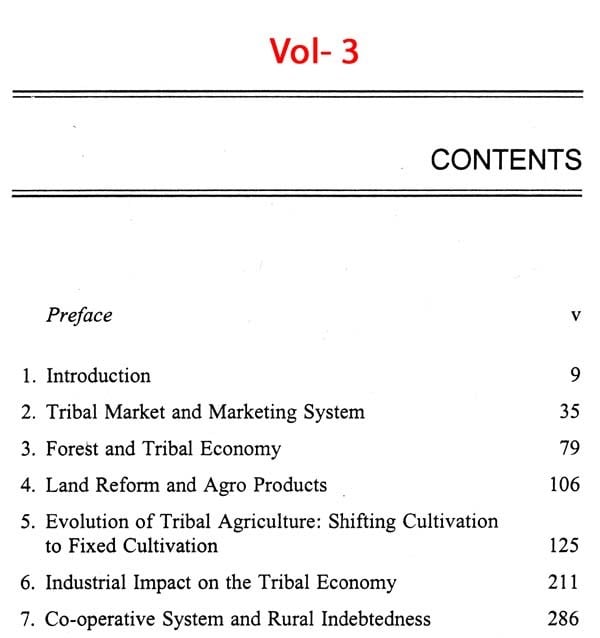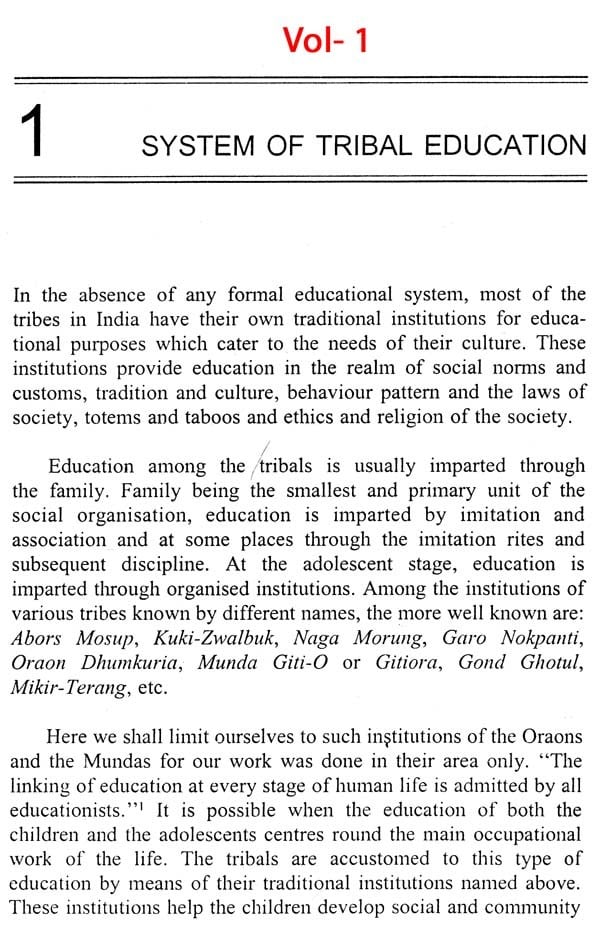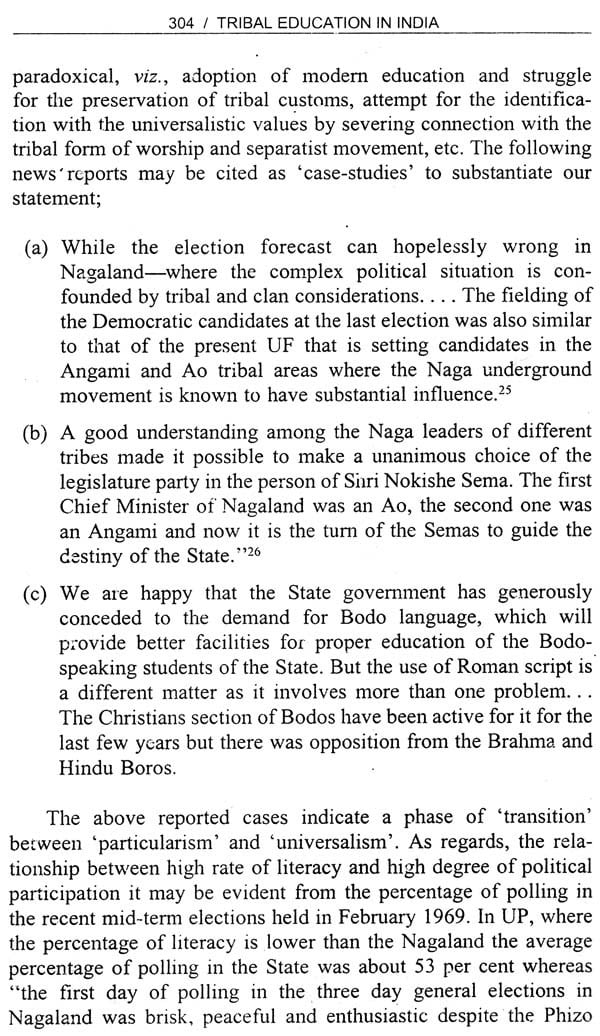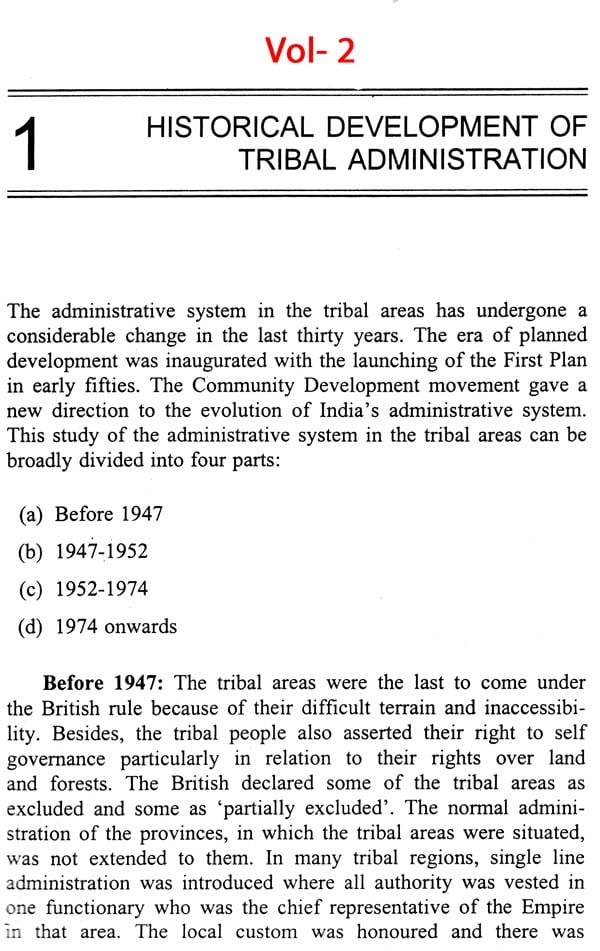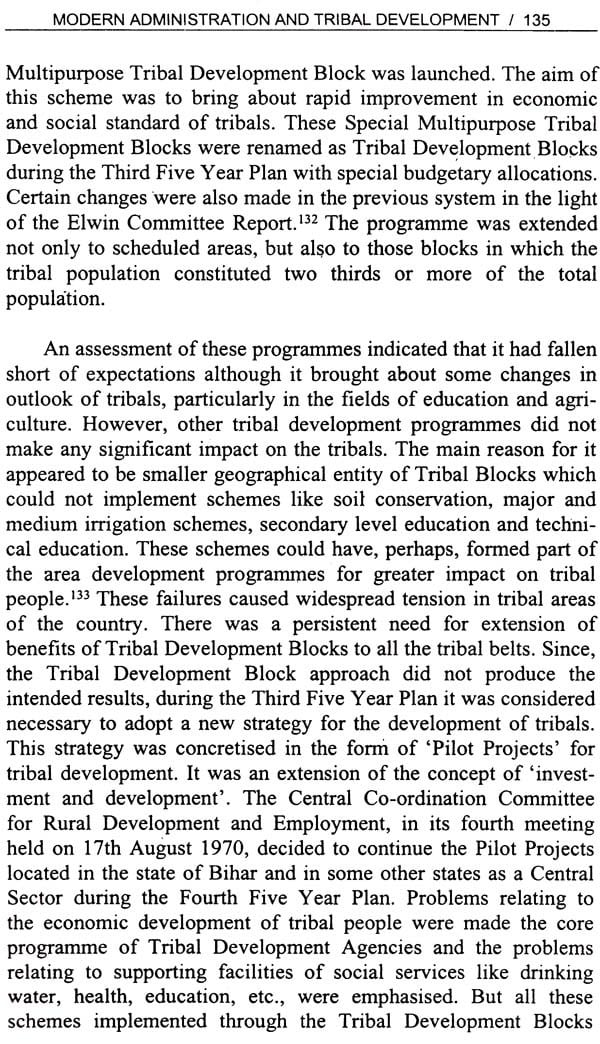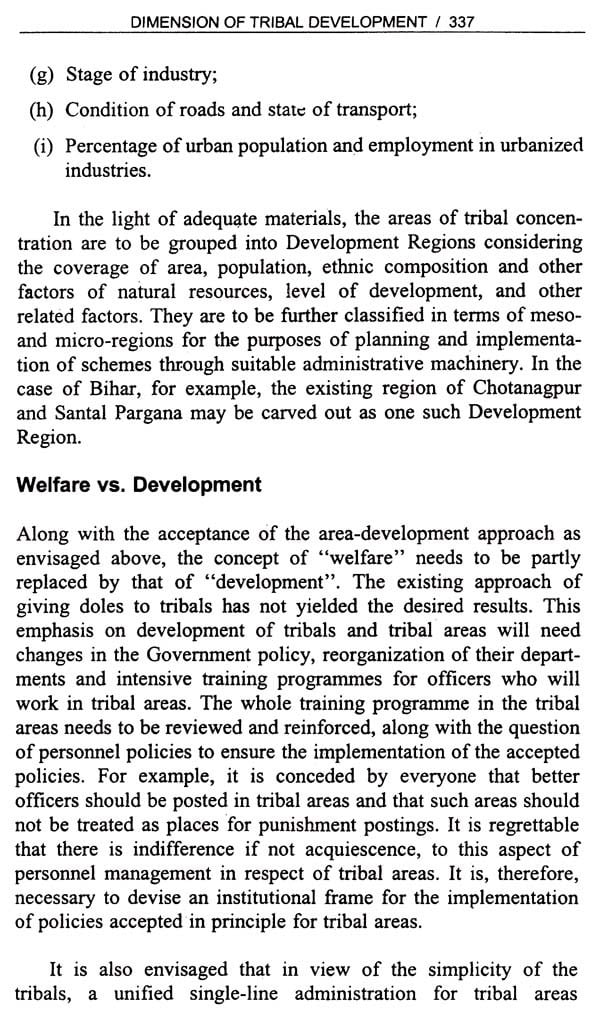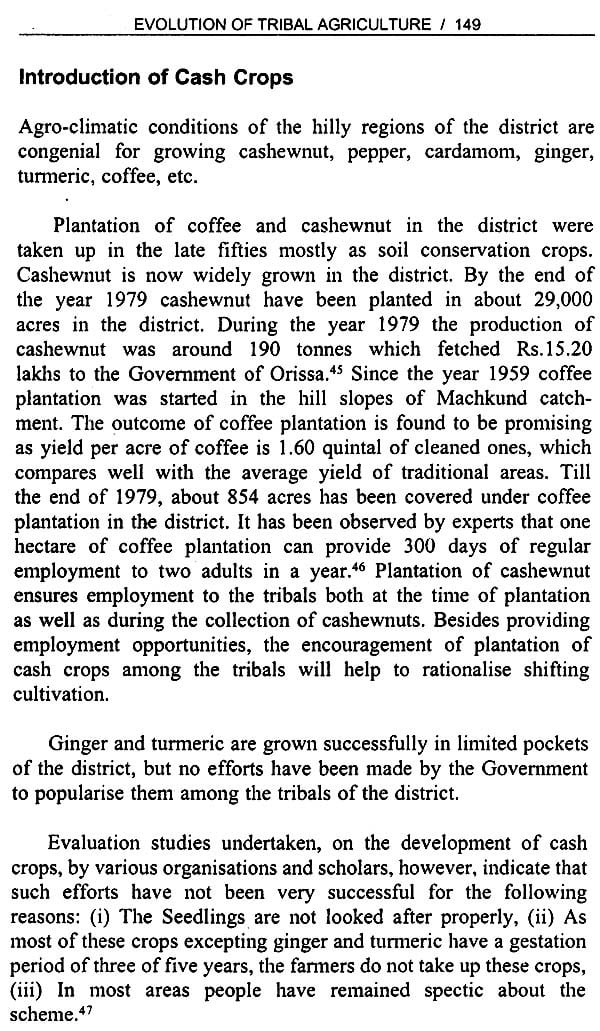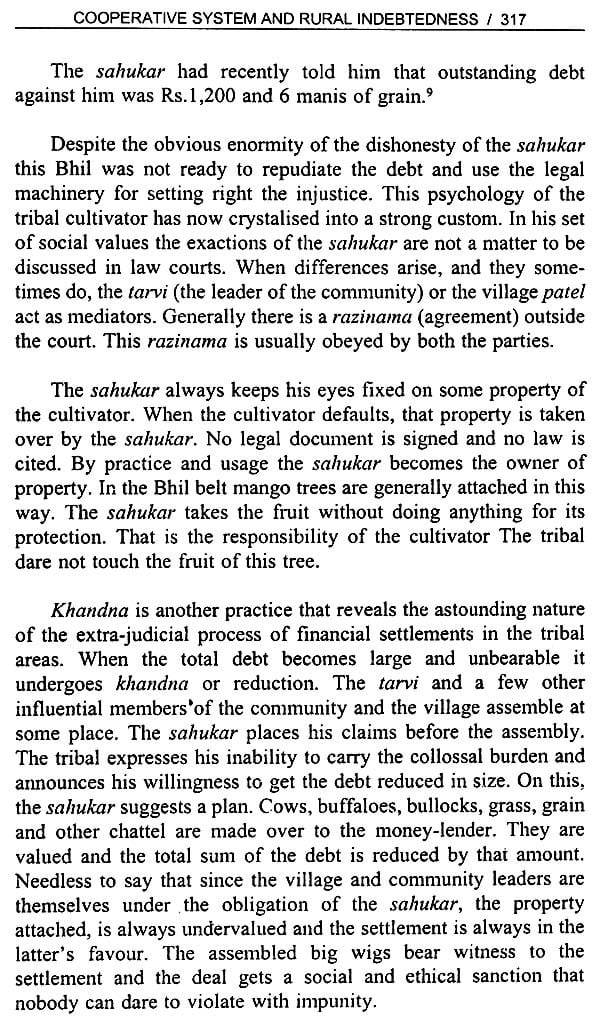About the Book The present title Tribal Education, Administration and Development in three volumes is a descriptive analysis of modern education, administration and development among tribals. First volume "Tribal Education in India" throws light on modern education system among the Indian tribes and its impact on their traditional educational institutions i.e. Abors-Mosup, Kuki Zwalbuk, Naga-Morung, Garo-Nokpanti, Oraon Dhumkuria, Mund-Giti or Gitiora, Gond Ghotul, Mikir-Terang, etc. An attempt has been made to understand the real problem faced by the Indian tribes after implementa tion of modern education system. Second volume "Tribal Administration and Development" deals with the administrative system in the tribal areas, which has undergone a considerable change in the last thirty years. Different aspects of tribal administration like historical development of tribal administration; issues and perspectives of tribal administration; modern administration and tribal development; conceptual framework of tribal development; plan, policy and programme for tribal development, etc. have been discussed in this volume. Third volume "Tribal Economy" throws light on true economic scenang of Indian tribes Tribal Marketin g System, Forest and Tribal Econolay nd Reform and Agro-Products, Evolution of Tribal Agriculture: Shifting Cultivation, to Fixed Cultiva tion, Industrial Impact on the Tribal Economy, and Co-operative System and Rural Indebtedness.
About the Authors Dr. A.C. Mittal is currently Head of Department of Economics, A.S. College, Lakhaoti. He has been teaching Graduate and Post Graduate classes for the last several years. He has contributed a number of research papers in various journals and seminars. He has also written books on Indian Economics, Statistics, Foreign Aid etc.
Preface Most of the tribes in India have their own traditional educational institutions. These institutions provide education in realm of social norms and customs, tradition and culture, behavior pattern and the laws of society, totems and taboos and ethics and religion of the society. Primary education among the tribes is usually imparted through family which is the smallest unit of the social organization. At the adolescent stage education is imparted through organized institutions, i.e. Abors-Mosup, Kuki-Zwalbuk, and Naga-Morung. Garo- Nokpanti, Oraon-Dhumkuria, Mund-Giti or Gitiora, Gond Ghotul, Mikir-Terang, etc.
This book is an attempt to understand the impact of modern educational system on their traditional educational institutions as well as socio-economic structure. The tribal people are prover bially poor. In midst of India's first changing economic life, the tribal people are facing a great economic crisis as well as socio-cultural disintegration. No single aspect of life can remain independent of other aspects of life. Disintegration of traditional economy of the tribal people has deformed their socio-cultural life. It has been found that extreme form of economic disintegration in the case of some tribes of India has led them to criminality. So, reorientation or reorganization is the prime need at present and we have also noticed that modern education failed to overcome their socio-economic crisis.
The present title is a comprehensive analysis of indroductio of the modern education and its impact on their socio-economi J.B. Sharma (b. 23 December 1962) has done M.A. (History) from Meerut University, Meerut (U.P.). He is also teaching in Inter College, Meerut. He has took participation in several seminars and produced his papers.
**Contents and Sample Pages**


